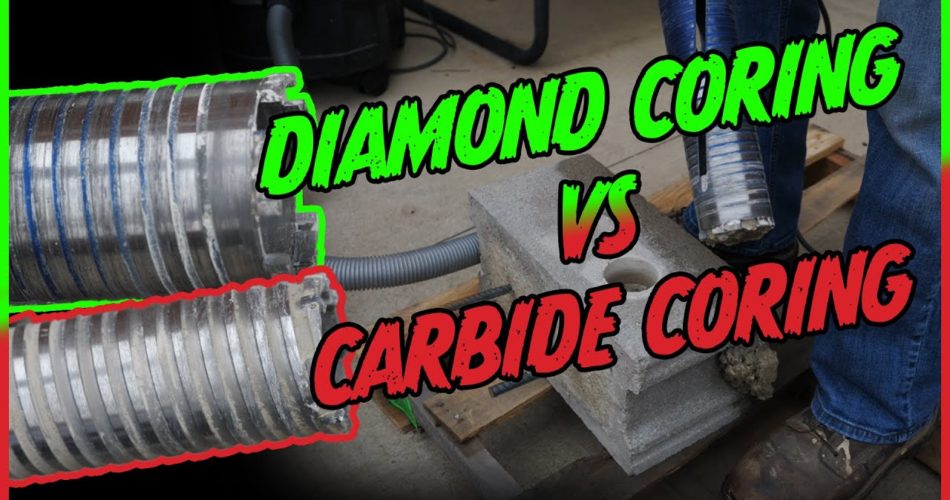These days, it seems like there are multiple tools and bits that can be used for any application, and that can make it hard to decide which option is best to use. For instance, I’m sure you’re aware of Carbide Coring Bits and Diamond Core Bits, but which core bit is best, and what tools work with each? They’ve both been around for years and different users swear by different ones. Let’s take a look at how they compare and which really is the best option.
We carry quite a few different bits for coring–wet core, dry, threaded barrel, etc. from Diamond Products Core Bore and Diteq. There are many advantages to each type of coring, and eventually we’ll do some in depth coverage of core drill bits. For now, let’s focus on dry coring with a diamond bit, because if you’re comparing to Carbide, we really are comparing to dry coring.

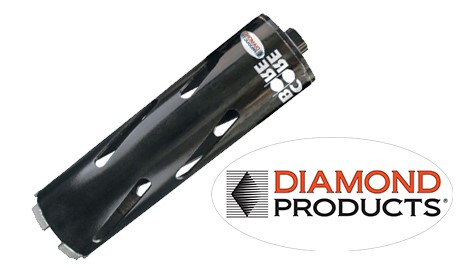
Typically, carbide core bits go into rotary hammer drills and diamond core bits go into specialty core drills–either hand- or rig-mounted. Most professionals have a hammer drill, but not everyone has a core drill, so sometimes the application can be troublesome. But, did you know that you can now use a diamond core bit with a hammer drill? Diteq has developed an adapter for SDS-Plus or SDS-MAX hammer drills, and It works fairly well, but only if your drill has a ‘rotate only’ mode. All SDS-Plus models have this mode, but that’s not the case with all SDS-MAX models. Of course, it’s great to have a dedicated core drill if you are a heavy user, but if you’re not coring every day, the hefty investment in a $1,400-$2,500 specialty core drill just wouldn’t make sense.
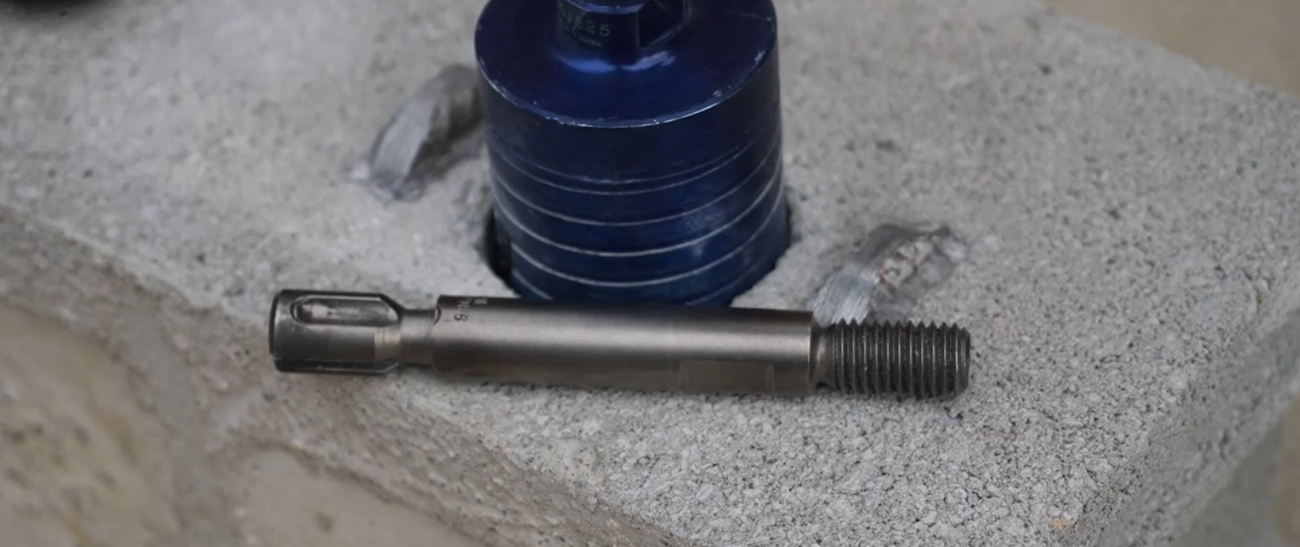
Coring can be extremely time consuming, especially if you need a clean, finished look. For many applications, you’ll want a smooth core and to not blow out the concrete on the other side. Carbide is a great coring solution, but this is where it lacks in quality. Carbide cuts well, is long lasting, and an overall great accessory for simply making a hole in concrete. However, it’s pounding the concrete the same way your chisel pounds the concrete when you want to remove it. This can very easily result in unsightly finishes, and when it comes to coring–there are better solutions.
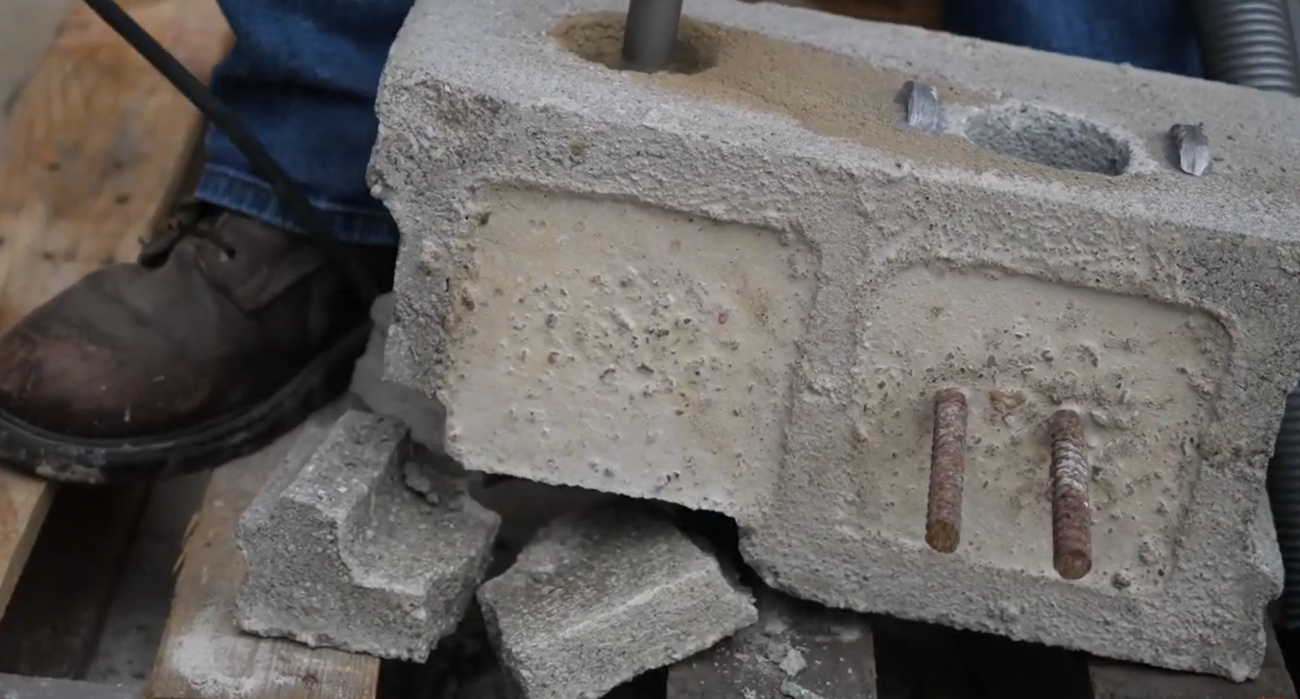
When coring into poured concrete, you’ll inevitably hit rebar or steel. This will actually chip off the carbide segments, causing a much larger headache. If your segment pops off, now you’re trying to cut through steel and carbide. The way around this is to core all the way to the steel or rebar, stop and switch your bit out to a Rebar Cutter in ‘drill only’ mode, then put your carbide bit back in and continue coring. This method works and will protect your carbide core bits, which is a great option.
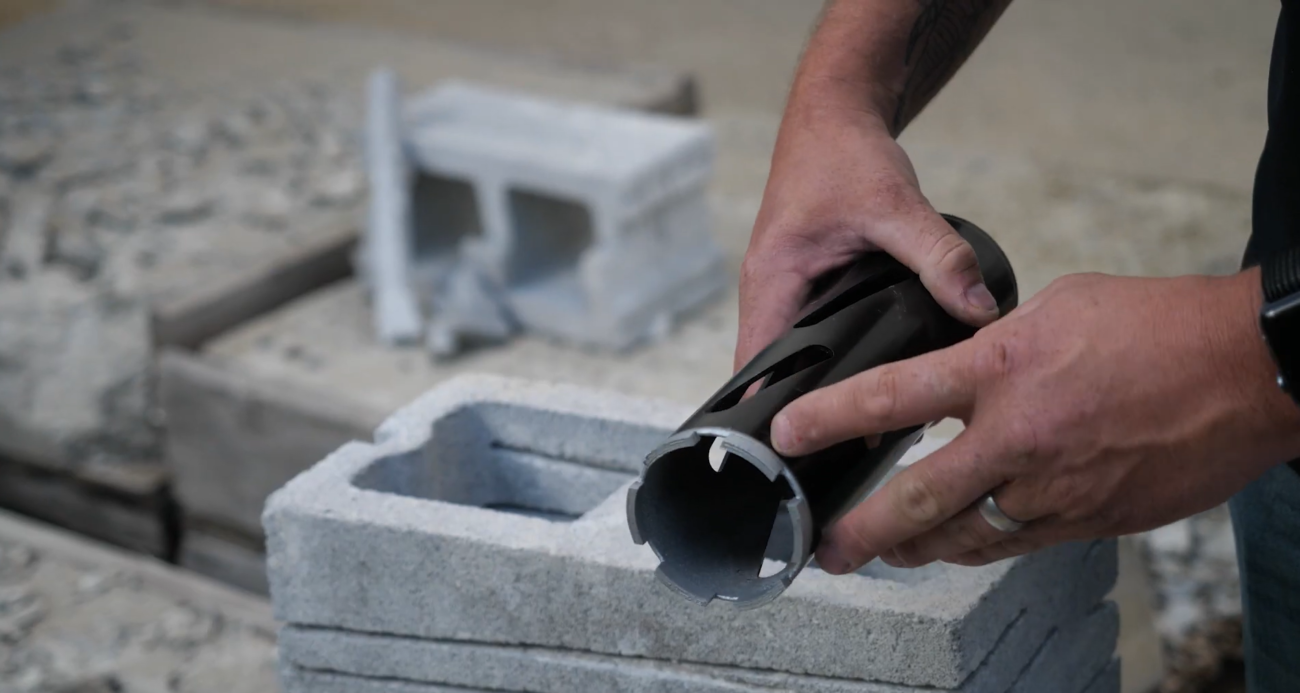
Unlike the carbide, though, diamond bits can continue through that steel or rebar without the need of switching it out. This is because the bits are not pounding the concrete, but instead are technically grinding it. As you can imagine, that saves time, which is important if each hole takes 10-15 minutes and you’ve got multiple to do. The other benefit to using a diamond bit is the quality. The pounding motion with a carbide bit will almost always result in blowing out the back of the concrete. If you’re running utilities into someone’s finished basement and this happens, that’s not a great look. With diamond bits in the ‘rotate only’ mode or using a core drill, there is no pounding, and since you’re grinding, you’ll get a nice clean core without the risk of destroying the concrete in the back.
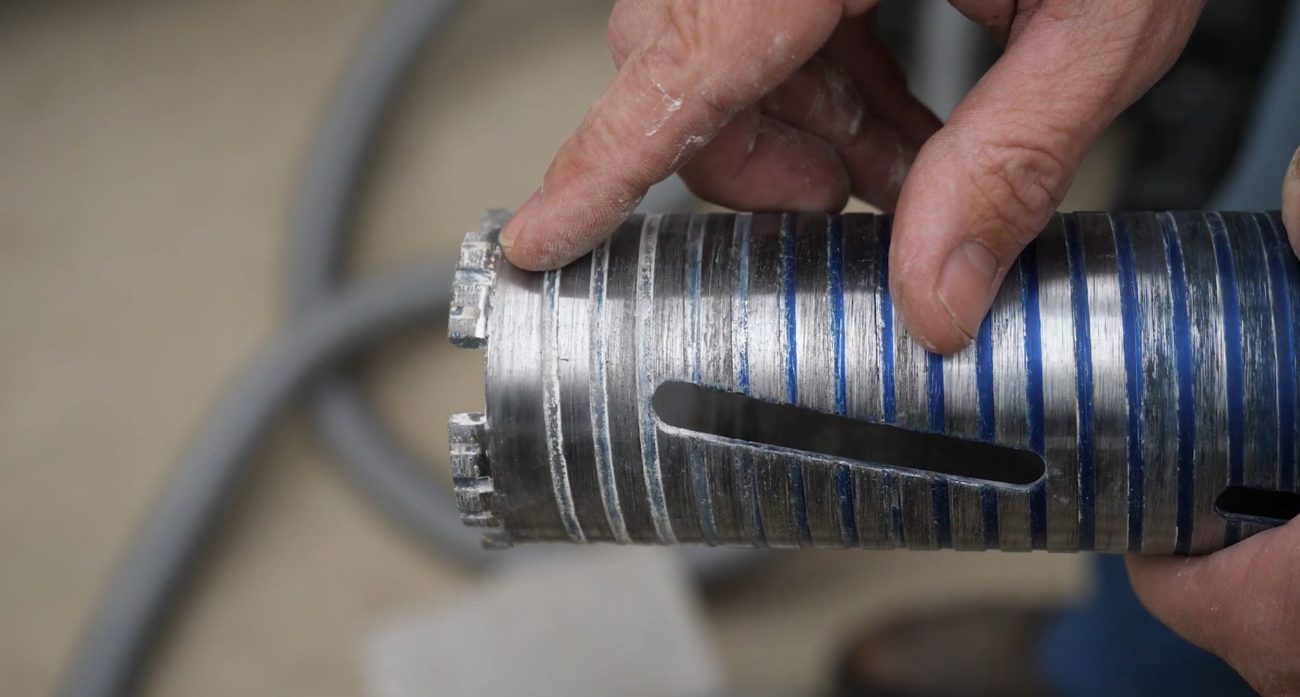
There is nothing wrong with carbide coring. It is still a viable option and there are great products out there for it, but we want everyone to make informed decisions and be aware that there are always options. Often, it doesn’t matter what the back side of a hole looks like. Either way, we’re here to help! If you have any questions about this which carbide or diamond core bit is right for you, the Ohio Power Tool team can help! Give us a call at 800-242-4424, email us at sales@ohiopowertool.com, or leave a comment below for assistance. To be the first to know about new products and deals, subscribe to our e-newsletter and follow us on social media!


